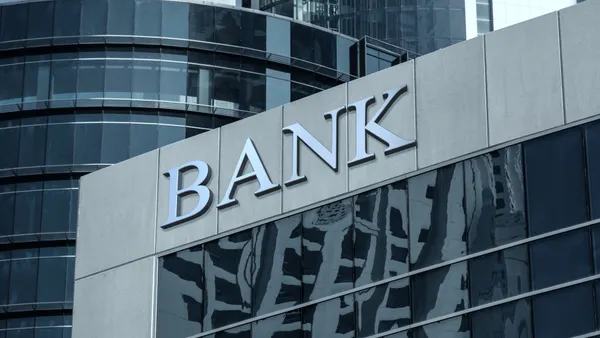Dive Brief:
- The Office of the Comptroller of the Currency has issued consent orders barring the former CEO and the founder of Southfield, Michigan-based Sterling Bancorp from the banking industry.
- Gary Judd, former chairman and CEO of Sterling Bank and Trust, and Scott Seligman, the bank’s founder, were also ordered to pay $300,000 and $400,000, respectively, according to an OCC news release Thursday. The March consent orders were connected to the bank’s operation of its Advantage Loan Program, which originated numerous loans that had false or fraudulent applications, the OCC said.
- Seligman, among the owners of the San Francisco Giants baseball team, was faulted for “contributing to a poor compliance culture at the bank,” and pressuring bank employees to quickly underwrite ALP loans, the OCC said in the release. Judd failed to oversee the program or supervise the bank insiders involved with it, the OCC said.
Dive Insight:
Judd was CEO of the bank and chairman of its board from August 2008 to November 2019. Despite not being a board member, bank officer or employee, Seligman “was a dominant influence at the Bank” between 2011 and December 2019, issuing directives to bank officers and staff and participating in bank affairs, the OCC noted.
The bank’s ALP, a “low-document” residential loan program, was the bank’s main residential loan product between mid-2011 and 2019. The program posed high risks for fraud, money laundering and lending misconduct, necessitating strong monitoring and controls, the OCC said.
“Despite deficiencies within the ALP, the Bank did not take appropriate corrective action and continued to grow the ALP,” the consent orders said. The bank also originated ALP loans without ensuring applicants’ ability to repay or that their documents submitted when applying for loans were reliable, the OCC said.
Sterling’s operation of the ALP resulted in both potential and actual loss to the bank, while benefiting Judd financially, the consent orders noted. Judd’s annual bonuses totaled $1.35 million between 2017 and 2019.
Judd and Seligman both “demonstrated continuing disregard for the safety and soundness of the Bank,” the OCC said. For his part, Judd failed to intervene or inform the bank’s board of Seligman’s involvement in bank operations, the OCC said. Judd, involved in the design and implementation of the ALP and risk monitoring related to it, also didn’t ensure Sterling’s Bank Secrecy Act program had an adequate internal controls system, the consent order said.
Judd and Seligman neither admitted nor denied the OCC’s findings, the consent orders noted.
The bank has faced scrutiny from a number of regulators over the troubled loan program. Sterling entered into a consent order with the OCC in 2022 that marked the conclusion of the agency’s investigation into the matter and the bank’s completion of certain remediation requirements tied to a 2019 agreement with the OCC, the bank said in its most recent annual filing with the Securities and Exchange Commission.
Last March, Sterling Bancorp pleaded guilty to one count of securities fraud for filing false securities statements in relation to its 2017 initial public offering and its 2018 and 2019 annual filings, the Justice Department said at the time. With the bank’s plea came a requirement to pay $27.2 million in restitution and a probation term through 2026.
The SEC’s enforcement division also conducted an investigation of the company related to the ALP. The agency concluded that probe last June without taking any enforcement action, according to the bank’s annual filing. The bank has faced a shareholder lawsuit related to the matter, as well.
Judd and Seligman aren’t the first Sterling affiliates the OCC has targeted. In February, Thomas Lopp, the bank’s former president, chief operating officer and chief financial officer, was also banned from the industry and fined $150,000 related to failure to oversee the bank’s ALP or intervene regarding Seligman’s involvement with the program, according to a consent order.
The bank’s former president of retail and commercial banking and former senior vice president and managing director of residential lending at the bank, have also been barred and ordered to pay monetary penalties. And earlier this year, the OCC issued personal cease-and-desist orders against the bank’s former general counsel and its former residential underwriting manager.
Separately, the OCC on Thursday made public its ban of two former JPMorgan Chase precious metals traders, John Edmonds and Christian Trunz, who were convicted in the DOJ’s anti-spoofing campaign.
Edmonds pleaded guilty in 2018 to commodities fraud and conspiracy to commit wire fraud, commodities fraud, price manipulation and spoofing, according to the DOJ. Trunz pleaded guilty to spoofing and conspiracy to engage in spoofing in 2019.












